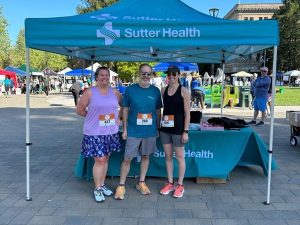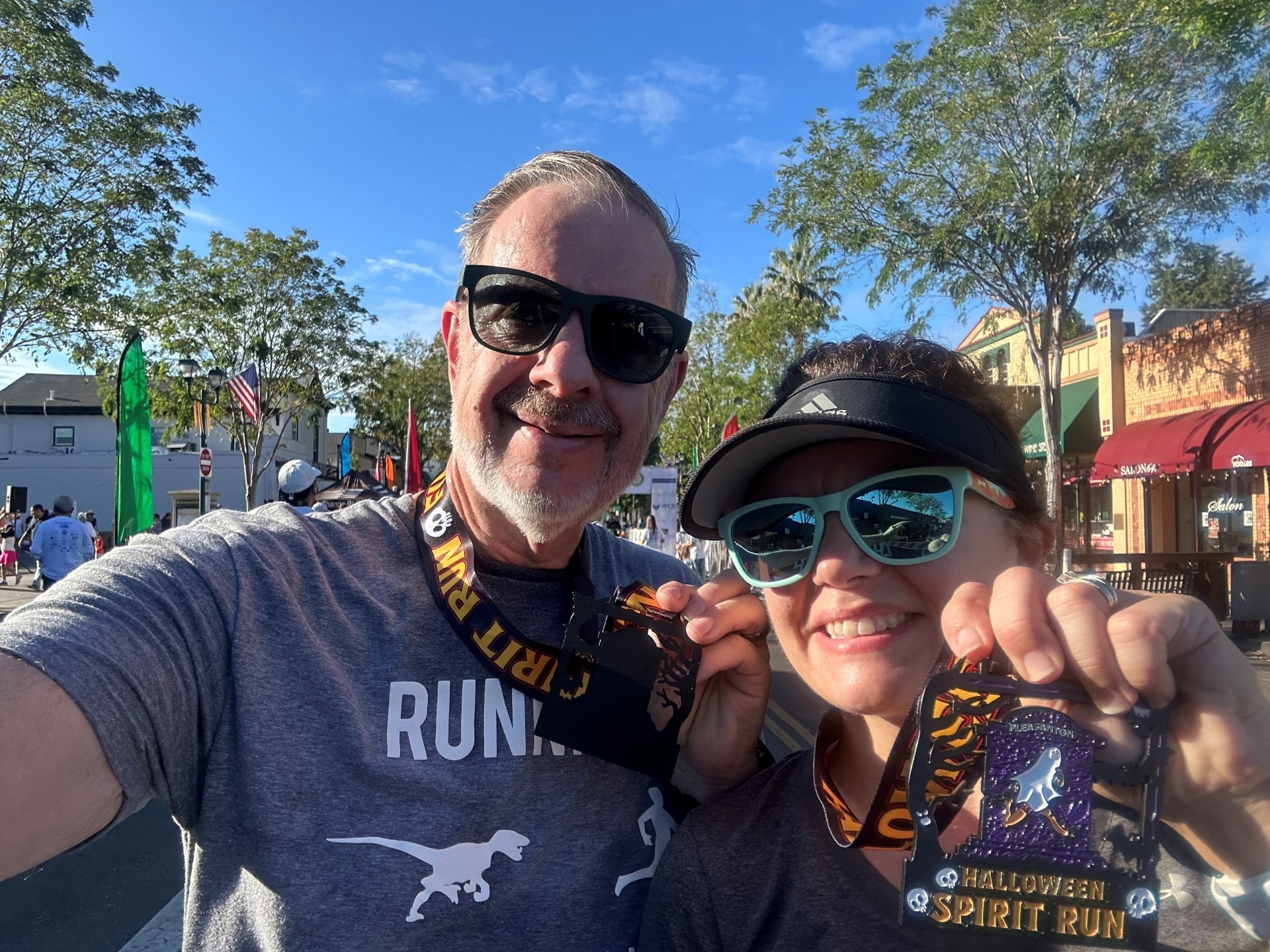Five years ago, Timothy Stephens, CEO of Sutter Lakeside Hospital, never imagined he would himself be a runner. At the time, he was more than 100 pounds overweight, struggling with prediabetes and feeling the effects of years spent in healthcare leadership roles that required long hours behind a desk.
At age 55, gastric sleeve surgery gave him the chance to reclaim his health. What followed was unexpected: running became more than exercise. It became a way to honor his second chance at life.
“I lost 110 pounds through surgery and lifestyle changes,” Stephens said. “As I got down to where I wanted to be and could move again, I started running 5Ks and other races. It was about protecting the gift I had been given.”
Stephens didn’t grow up with a background in sports. Raised in a rural farming community, he stayed active through hard physical labor, but athletics weren’t part of his childhood. Even during his time in the military, where he trained as a radiological technologist, running was his least favorite requirement.
“I hated it,” he said. “It was always the part I dreaded the most.”
Today, at 60, Stephens runs between 350 and 360 miles a year. He doesn’t run for speed — he runs for discipline, resilience and community.
“I’m slow. I just grind it out and don’t stop,” he said. “Running is really about grit and determination. It’s doing something hard just because you can.”
Advice for New or Returning Runners
Stephens knows firsthand that starting isn’t easy. “Expect soreness, expect to feel out of breath, expect to want to quit,” he said. “The key is to start slow, get good shoes, stretch well and listen to your body. Even if you have to slow down, try not to stop. Once you stop, it’s so much harder to start again.”
He also emphasizes preparation. Hydration and sleep before race day are critical, and for longer runs, he recommends fueling with energy gels or snacks to avoid burnout. 
But above all, Stephens said the mental side of running is what matters most: “Your body will tell you to stop. You have to decide you won’t. That stubbornness builds resilience you can carry into every part of life.”
The Joy of the Finish Line
For Stephens, the finish line brings a surge of emotion every time. “I always sprint across. It feels so good to finish strong, and the encouragement from other runners and the crowd is amazing,” said Stephens. “That community aspect is huge — you cheer for others, they cheer for you. It’s not about beating someone else; it’s about being better than you were yesterday.”
Stephens’ story is proof that it’s never too late to start. Whether you’re 25 or 55, experienced or brand new, running can be a pathway to better health, a stronger mindset and a supportive community.
“I’m not a natural runner,” he said. “But I run to honor my second chance — and anyone can take that first step.”
Sutter Health is the presenting sponsor and official medical team and health partner of the California International Marathon and the San Francisco Half Marathon. For more information on the CIM, visit runsra.org/california-international-marathon. For details about the 2026 San Francisco Half Marathon, including registration, charitable partnerships and sponsorship opportunities, visit sanfranciscohalfmarathon.org.
For more information on health and wellness, visit Sutter Health’s Health Living Blog here.
NOTE: This content is not intended to be a substitute for professional medical advice, diagnosis or treatment. Always seek the advice of your physician or other qualified health provider with any questions you may have regarding a medical condition. Never disregard professional medical advice or delay in seeking it because of something you have read on this website.





